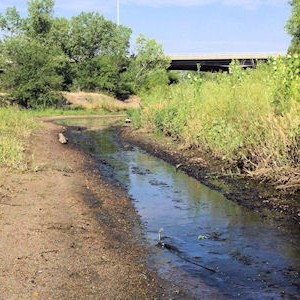Federal Water Tap, September 17: Congress Talks Water; Scientists Look at Glaciers and Biofuels
Sometime this week, the House of Representatives will consider H.R. 3409, which its sponsor, an Ohio Republican, has dubbed the Stop the War on Coal Act of 2012. The bill would prevent the Interior Department from issuing regulations until December 2013 that might cut jobs in the coal sector or restrict the industry’s access to coal resources.
The Natural Resources Committee supports the bill. The committee’s report can be found here.
Congressional Hearings
On Wednesday the Senate Committee on Energy and Natural Resources will debate four bills related to water resources and hydropower.
On Thursday the Senate Committee on Environment and Public Works will consider the Water Resources Development Act, the legislation that authorizes spending on flood control and navigation, rivers and ports.
Also on Thursday, the House Transportation and Infrastructure Committee will discuss the barriers preventing greater state administration of section 404 of the Clean Water Act. This section regulates the dumping of dredged material into water bodies. Only two states are in charge of their section 404 programs, compared to 46 that administer their own pollution-permitting systems.
Himalayan Glaciers
It’s complicated. That’s one conclusion from a National Research Council report on water resources in Asia’s water tower. The authors examined the effect of climate change on the region’s glaciers, the resiliency of current water management systems and their vulnerabilities, and the national security implications.
According to the report:
The watersheds of the area each exhibit complex hydrology and the magnitude of the contribution of glacial meltwater to the total water supply in these rivers is not clear and the implications of accelerated rates of glacial retreat and the resulting increase in glacial wastage for downstream populations have not been precisely characterized. Important questions about regional water security need to be addressed in the context of incomplete science and unresolved uncertainties.
Water-Efficient Biofuel
Thanks to a US$14.3 million grant from the Department of Energy, researchers in the U.S. and the United Kingdom will study drought tolerance in desert plants in hopes of incorporating the trait into new feedstocks for biofuels. Such a move could reduce the demands for biofuel crops from prime farmland.
The research team’s goal is to shift the photosynthetic process in poplar trees from daytime to nighttime, so that the process uses less water.
Drinking Water and Sanitation
Congress’s research arm submitted a report on U.S. and international programs to improve access to clean drinking water and sanitation.
Federal Water Tap is a weekly digest spotting trends in U.S. government water policy. To get more water news, follow Circle of Blue on Twitter and sign up for our newsletter.
Brett writes about agriculture, energy, infrastructure, and the politics and economics of water in the United States. He also writes the Federal Water Tap, Circle of Blue’s weekly digest of U.S. government water news. He is the winner of two Society of Environmental Journalists reporting awards, one of the top honors in American environmental journalism: first place for explanatory reporting for a series on septic system pollution in the United States(2016) and third place for beat reporting in a small market (2014). He received the Sierra Club’s Distinguished Service Award in 2018. Brett lives in Seattle, where he hikes the mountains and bakes pies. Contact Brett Walton





Leave a Reply
Want to join the discussion?Feel free to contribute!